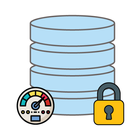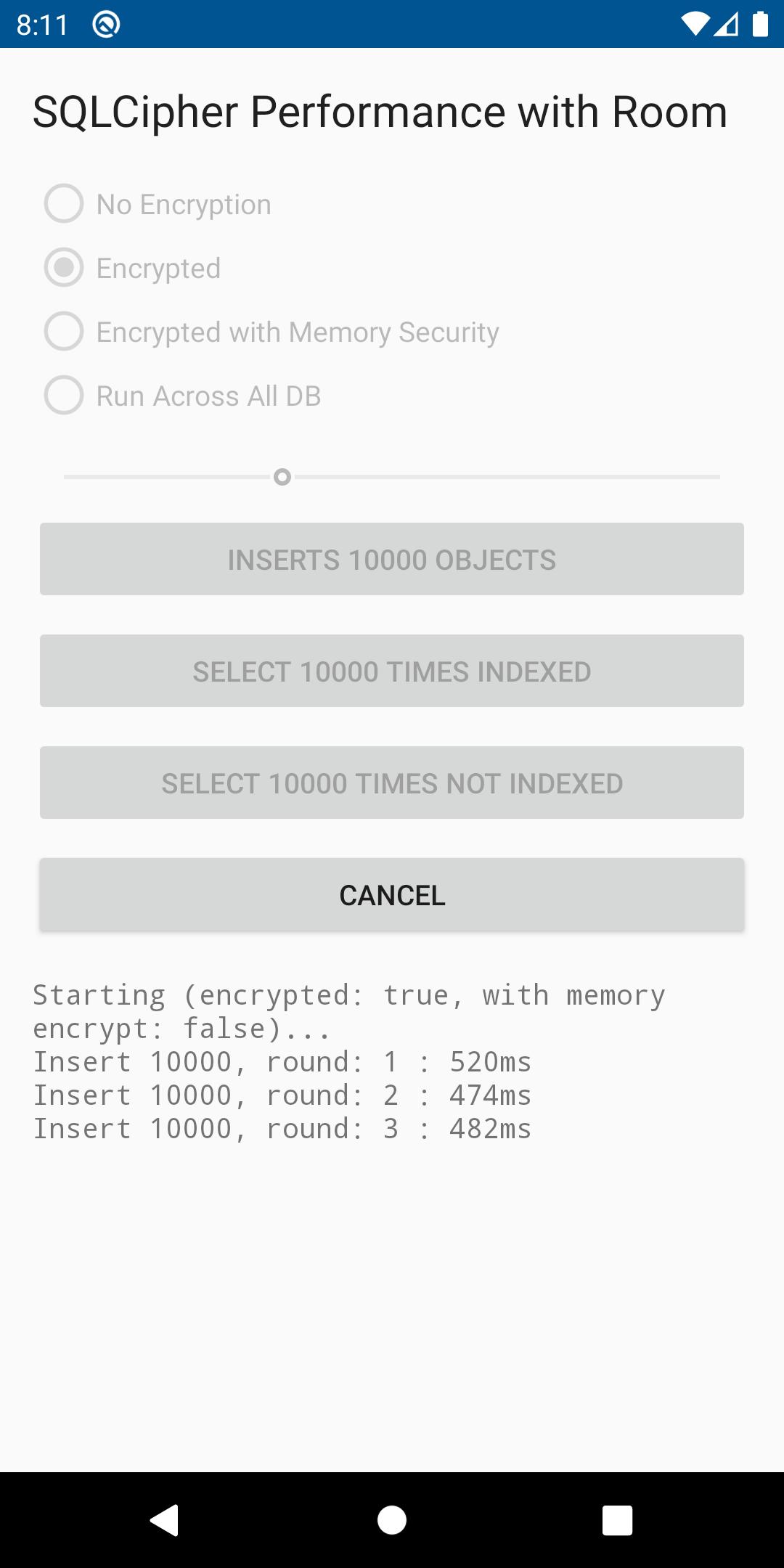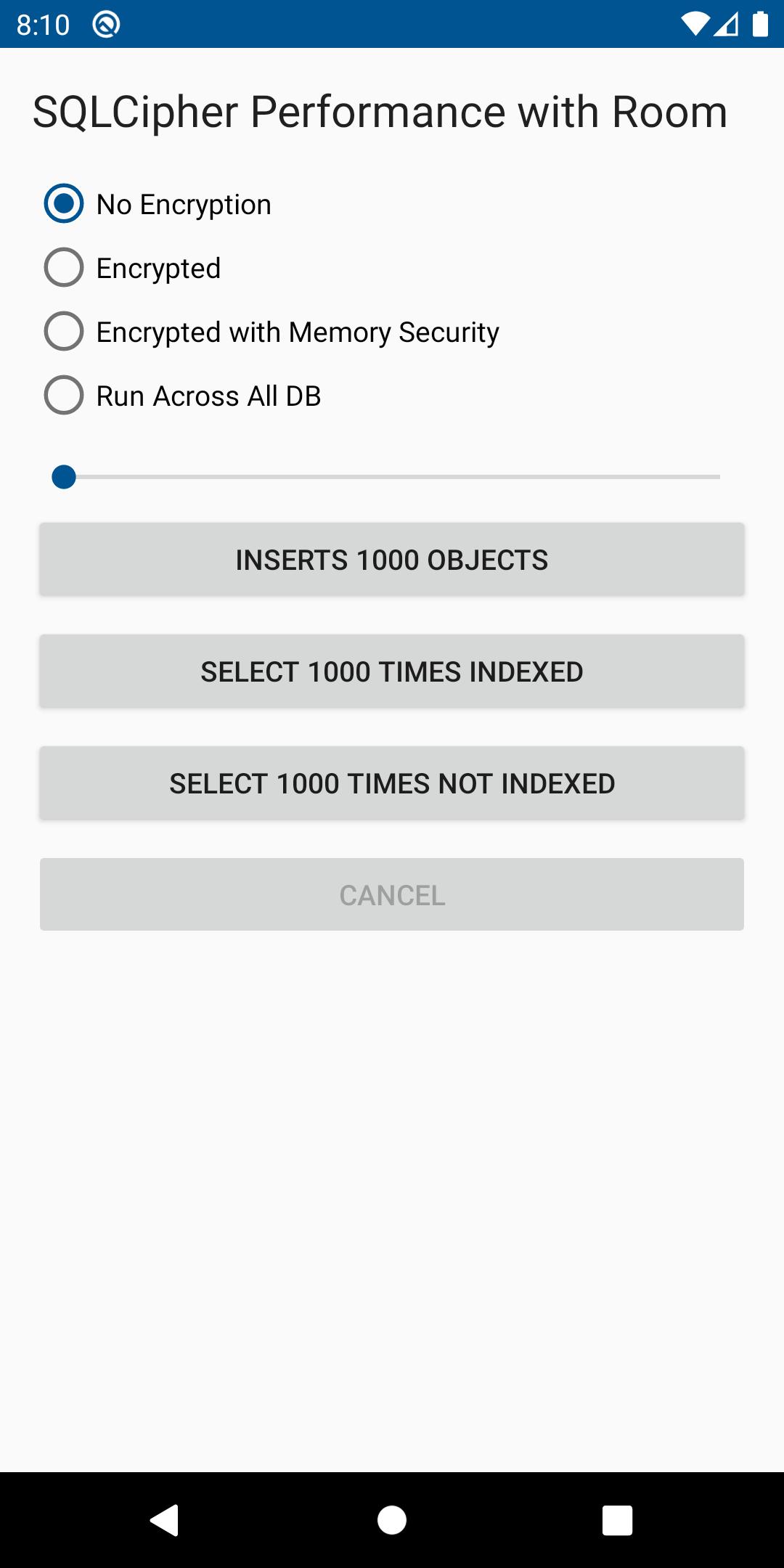SQLCipher Performance helps you evaluate SQLCipher performances
SQLCipher Performance helps you evaluate SQLCipher performances
What's New in the Latest Version 2.0
Last updated on Nov 14, 2023
Updated Target SDK, SQLCipher and dependencies
SQLCipher PerformanceSQLCipher is a popular open-source encryption library that provides transparent encryption for SQLite databases. It is widely used in applications that require data security, such as mobile apps, embedded systems, and cloud services.
The performance of SQLCipher is a critical factor for many applications. Encryption and decryption operations can add significant overhead to database operations, especially for large datasets or complex queries.
Encryption and Decryption Overhead
The encryption and decryption overhead in SQLCipher is primarily determined by the encryption algorithm used. SQLCipher supports a variety of algorithms, including AES-256, ChaCha20, and Blowfish. AES-256 is the most secure algorithm but also the slowest, while Blowfish is the fastest but less secure.
The choice of encryption algorithm should be based on the specific security and performance requirements of the application. For applications that require maximum security, AES-256 is the best choice. For applications that prioritize performance, Blowfish may be a better option.
Query Performance
The performance of SQLCipher queries is generally comparable to that of unencrypted SQLite databases. However, there are some cases where SQLCipher may experience a slight performance degradation.
One potential performance issue is the use of indexes. Indexes can significantly improve the performance of queries by reducing the number of disk reads required. However, SQLCipher must decrypt the data before it can use an index, which can add some overhead.
Another potential performance issue is the use of complex queries. Complex queries, such as those that involve joins or subqueries, can require more processing time than simple queries. SQLCipher must decrypt the data for each step of the query, which can add to the overall execution time.
Database Size
The size of the database can also impact SQLCipher performance. Larger databases require more time to encrypt and decrypt, which can lead to slower query performance.
Hardware Considerations
The performance of SQLCipher can also be affected by the hardware on which it is running. Faster CPUs and more memory can help to improve SQLCipher performance.
Optimization Techniques
There are several techniques that can be used to optimize SQLCipher performance:
* Choose the appropriate encryption algorithm: Select an encryption algorithm that balances security and performance requirements.
* Use indexes: Create indexes on frequently used columns to reduce the number of disk reads required.
* Simplify queries: Avoid complex queries whenever possible.
* Use prepared statements: Prepared statements can improve query performance by reducing the amount of parsing required.
* Upgrade hardware: Consider using faster hardware to improve SQLCipher performance.
By following these optimization techniques, developers can improve the performance of their SQLCipher applications while maintaining a high level of data security.
SQLCipher Performance helps you evaluate SQLCipher performances
SQLCipher Performance helps you evaluate SQLCipher performances
What's New in the Latest Version 2.0
Last updated on Nov 14, 2023
Updated Target SDK, SQLCipher and dependencies
SQLCipher PerformanceSQLCipher is a popular open-source encryption library that provides transparent encryption for SQLite databases. It is widely used in applications that require data security, such as mobile apps, embedded systems, and cloud services.
The performance of SQLCipher is a critical factor for many applications. Encryption and decryption operations can add significant overhead to database operations, especially for large datasets or complex queries.
Encryption and Decryption Overhead
The encryption and decryption overhead in SQLCipher is primarily determined by the encryption algorithm used. SQLCipher supports a variety of algorithms, including AES-256, ChaCha20, and Blowfish. AES-256 is the most secure algorithm but also the slowest, while Blowfish is the fastest but less secure.
The choice of encryption algorithm should be based on the specific security and performance requirements of the application. For applications that require maximum security, AES-256 is the best choice. For applications that prioritize performance, Blowfish may be a better option.
Query Performance
The performance of SQLCipher queries is generally comparable to that of unencrypted SQLite databases. However, there are some cases where SQLCipher may experience a slight performance degradation.
One potential performance issue is the use of indexes. Indexes can significantly improve the performance of queries by reducing the number of disk reads required. However, SQLCipher must decrypt the data before it can use an index, which can add some overhead.
Another potential performance issue is the use of complex queries. Complex queries, such as those that involve joins or subqueries, can require more processing time than simple queries. SQLCipher must decrypt the data for each step of the query, which can add to the overall execution time.
Database Size
The size of the database can also impact SQLCipher performance. Larger databases require more time to encrypt and decrypt, which can lead to slower query performance.
Hardware Considerations
The performance of SQLCipher can also be affected by the hardware on which it is running. Faster CPUs and more memory can help to improve SQLCipher performance.
Optimization Techniques
There are several techniques that can be used to optimize SQLCipher performance:
* Choose the appropriate encryption algorithm: Select an encryption algorithm that balances security and performance requirements.
* Use indexes: Create indexes on frequently used columns to reduce the number of disk reads required.
* Simplify queries: Avoid complex queries whenever possible.
* Use prepared statements: Prepared statements can improve query performance by reducing the amount of parsing required.
* Upgrade hardware: Consider using faster hardware to improve SQLCipher performance.
By following these optimization techniques, developers can improve the performance of their SQLCipher applications while maintaining a high level of data security.










